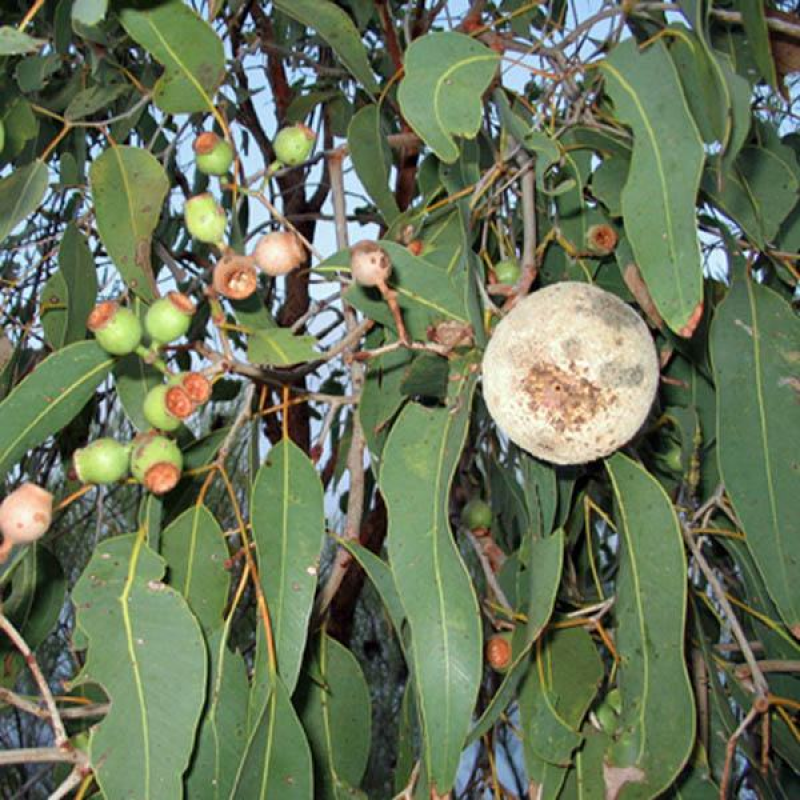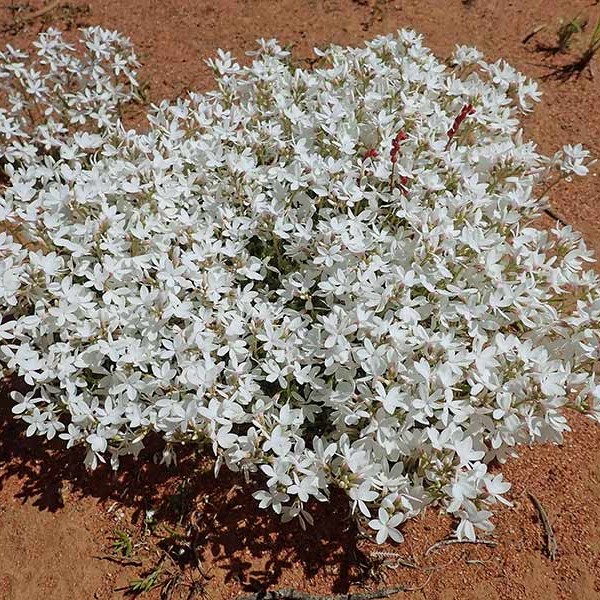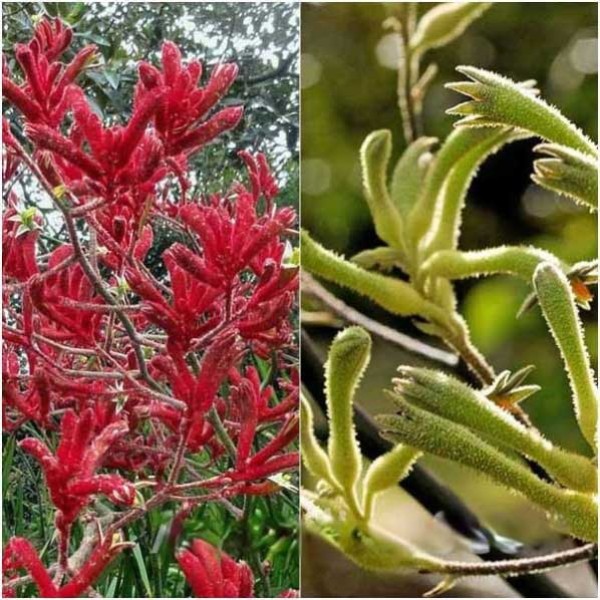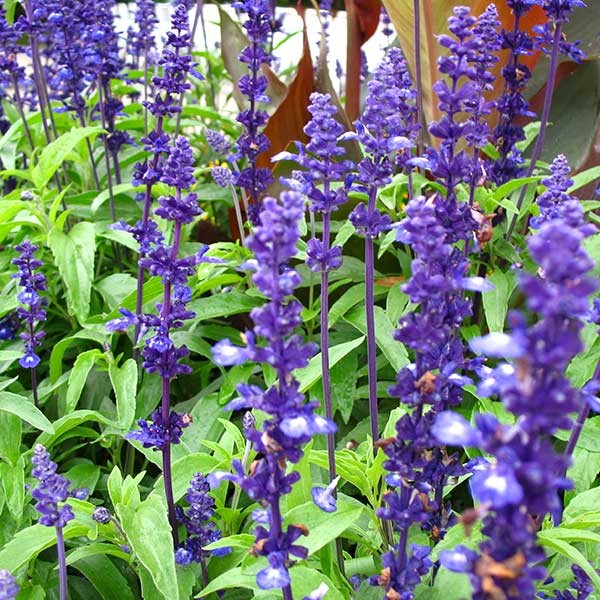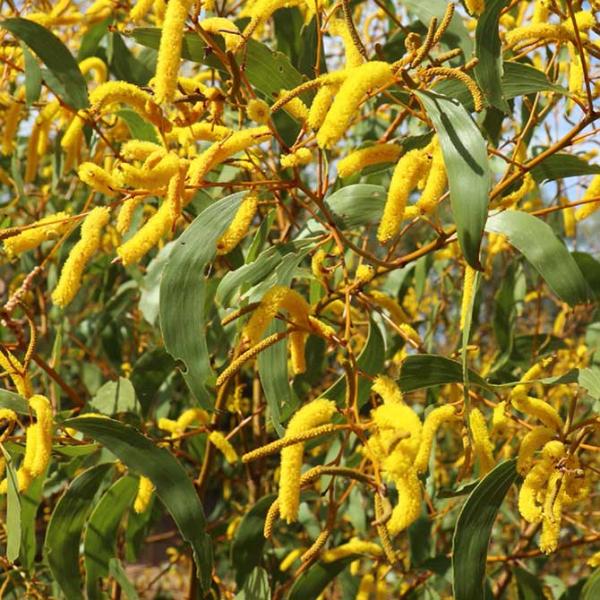We ship Internationally and Australia wide | Phytosanitary Certificates available for international orders.
The Desert Bloodwood is long-lived tree, large specimens can reach 15 metres in height but are more commonly 8–10 metres, and are likely to live several hundred years.
Produces yellow and white flowers in the cooler months from April to October. The drops of nectar in each flower provide a high energy drink for many desert animals including honey-eaters, insects and possums.
The Desert Bloodwood tree is host to an unusual female insect called a coccid. She has no legs, wings or antennae and never leaves her gall. Hidden away, she spends her life sucking sap out of the trees veins. The gall that grows on the tree is the coconut, once you have collect the coconut it must be broken open, the insect on the inside is what you eat, the grub contains a lot of moisture and a disinfectant, it is still eaten today.
Endemic to Western Australia, South West Queensland, Northern New South Wales and the Northern Territory.
Adaptable to a range well-drained soils, drought and frost tolerant.
Note: Corymbia terminalis is one of around 80 eucalyptus which were transferred in 1995 from the genus Eucalyptus to the newly created genus Corymbia. The species was formerly known as Eucalyptus terminalis.
Please Note: Although many of the traditional Bush Food and Medicine plants are now commercially produced in various forms we recommend you re-search these before using them as any form of food or medicines. Some parts of the plant may not be edible or some may need prepared before they are safe to eat or use in any way. We do our best to describe their traditional & modern uses. It is the purchaser responsibility to ensure they are fit for their intended use.
Best sown in spring or autumn in temperate climates, avoid the coldest and hottest months of the year. The optimum temperature for germination is around 18-22°C
Sow seed in a seed-raising mix just below the surface.
Water with a fine mist spray to avoid disturbance of the seed.
Germination generally occurs in around 10-28 days.
Please note:
These growth notes are provided as guidance only and do not guarantee successful germination.
If you are uncertain about the requirements for importing seeds into your country, do not hesitate to contact our Export Manager at Australian Seed.
Being a registered Export Establishment, we have an officer who can help you obtain Phytosanitary certificates if needed.
It is important to note that the buyer is responsible for clearing the goods through customs and paying all associated charges, including import fees and taxes. Please note that we cannot accept returns due to Australian quarantine restrictions.
You can find the complete International terms and conditions by clicking on this link
At Australian Seed, we take pride in our extensive network of trusted suppliers and collectors who work with us to provide you with an unmatched selection of top-quality products.
Whether you are searching for a specific item or need to make a bulk purchase, our team is here to help. Our dedicated customer service representatives can guide you through our vast inventory and assist you in finding exactly what you need.
We are committed to providing our customers with the highest level of service and support.
Please don't hesitate to contact us If you require any assistance. Please don't hesitate to contact us at Australian Seed

